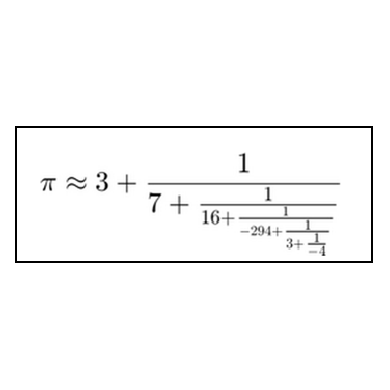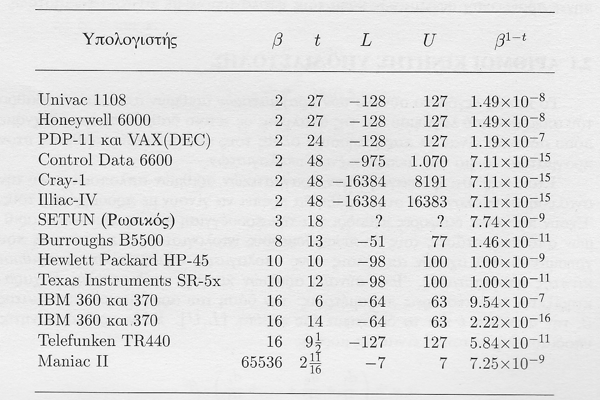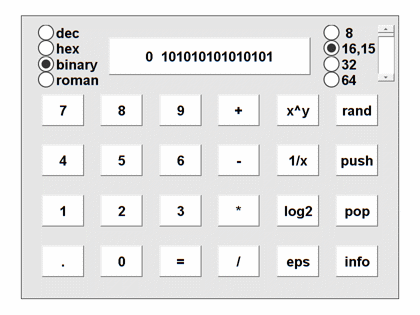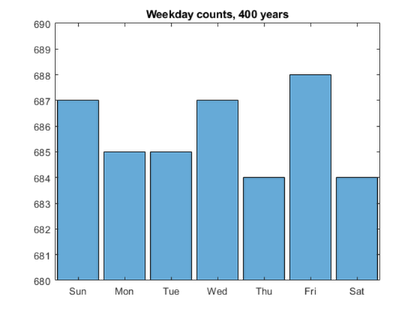
Let me tell you about MATLAB's controversial function rat.... 更多内容 >>

Let me tell you about MATLAB's controversial function rat.... 更多内容 >>

For the past month I have been working with the variable format 16-bit floating point arithmetic that I described in this post. It has been frustrating work. I have found that the limited precision and limited range of half precision make it barely usable for the kind of experiments with matrix computation that I like to do. In this post I will describe a few of these experiments.... 更多内容 >>

In a comment following my post about half-precision arithmetic, "Raj C" asked how the parameters for IEEE Standard 754 floating point arithmetic were chosen. I replied that I didn't know but would try to find out. I called emeritus U. C. Berkeley Professor W. (Velvel) Kahan, who was the principle architect of 754. Here is what I learned.... 更多内容 >>

A year and a half ago I wrote a post about "half precision" 16-bit floating point arithmetic, Moler on fp16. I followed this with a bug fix, bug in fp16. Both posts were about fp16, defined in IEEE standard 754. This is only one of 15 possible 16-bit formats. In this post I am going to consider all 15.... 更多内容 >>

If you follow this blog regularly, you know that I love fractals. I recently spent a pleasant afternoon in Nashua, New Hampshire, where my daughter Teresa introduced me to Gregory Searle, a fractal artist and computer geek. Here is his logo.... 更多内容 >>

Today is Friday, the 13th. In many parts of the world, today is regarded as unlucky. But I want to revisit an old question: is today unlikely? What are the chances that the 13th of any month falls on a Friday? Computing the answer makes use of a new MATLAB® feature, the datetime method.... 更多内容 >>
My post on May 8 was about "half-precision" and "quarter-precision" arithmetic. I also added code for objects fp16 and fp8 to Cleve's Laboratory. A few days ago I heard from Pierre Blanchard and my good friend Nick Higham at the University of Manchester about a serious bug in the constructors for those objects.... 更多内容 >>

I first encountered the Hilbert matrix when I was doing individual studies under Professor John Todd at Caltech in 1960. It has been part of my professional life ever since.... 更多内容 >>

The floating point arithmetic format that occupies 128 bits of storage is known as binary128 or quadruple precision. This blog post describes an implementation of quadruple precision programmed entirely in the MATLAB language.... 更多内容 >>

The floating point arithmetic format that requires only 16 bits of storage is becoming increasingly popular. Also known as half precision or binary16, the format is useful when memory is a scarce resource.... 更多内容 >>